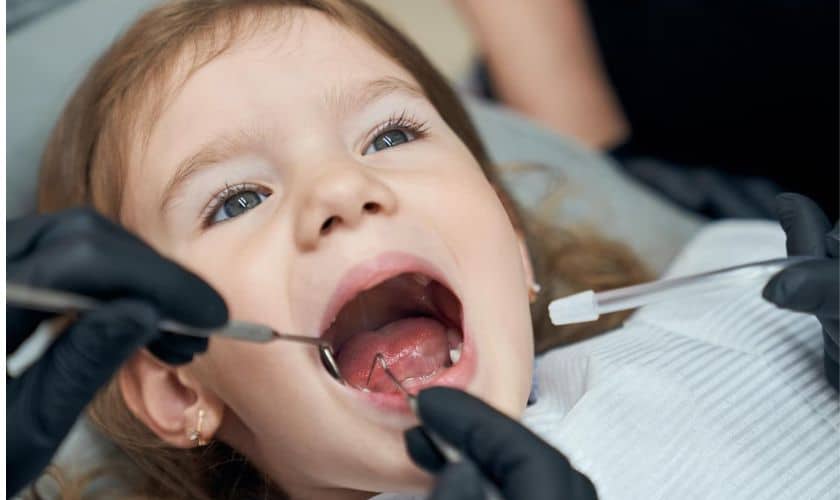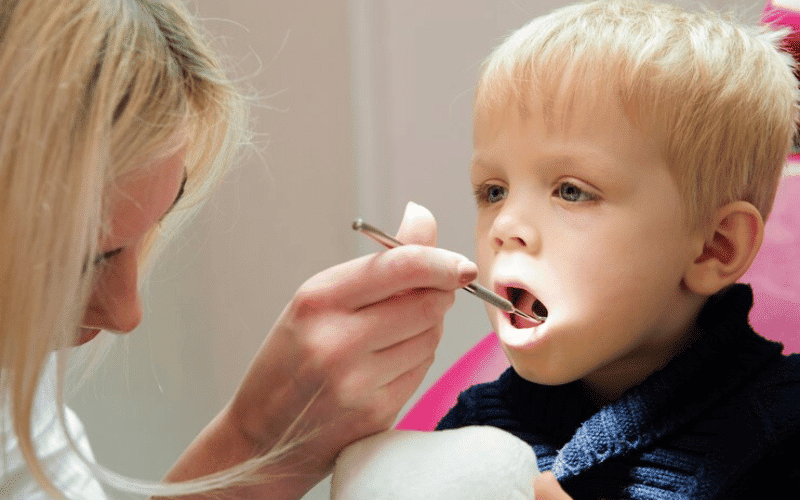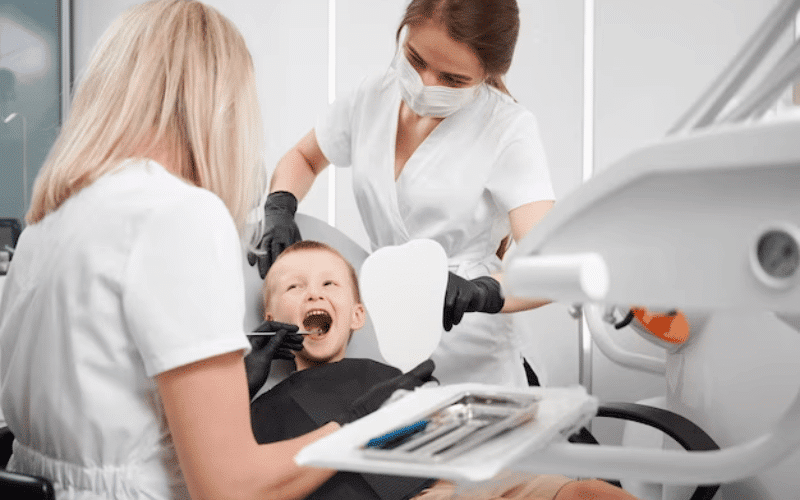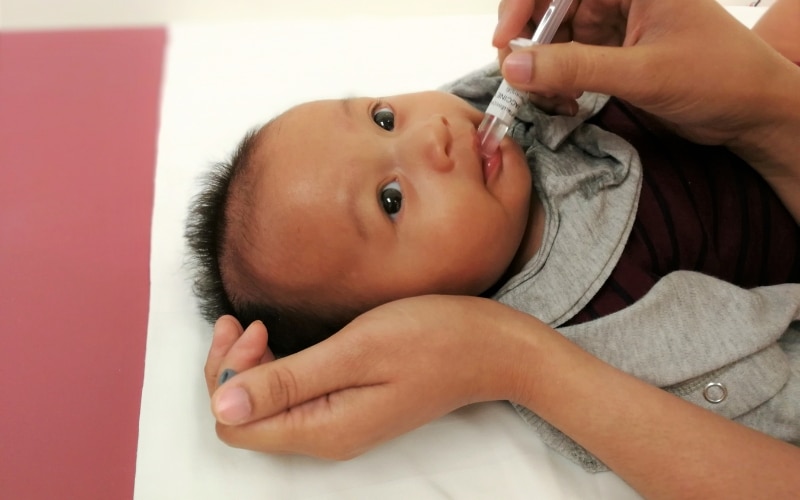How Infant Oral Exams Can Help Detect Early Signs Of Dental Problems

As a parent, you want your little one to be as healthy and happy as possible. While regular check-ups with their pediatrician are essential, many parents overlook the importance of an infant oral exam. Believe it or not, these quick and painless appointments can help detect early signs of dental problems that could impact your child’s overall health in the long run. In this blog post, we’ll explore everything you need to know about infant oral exams and why they should be a part of your child’s healthcare routine from an early age.
What Is An Infant Oral Examination?
Infant Oral Examination, also known as a dental checkup for babies, is an important step in maintaining good oral health in infants. It involves an examination of the baby’s mouth to detect any early signs of dental problems such as tooth decay, gum disease, or other abnormalities.
During the examination, a pediatric dentist will inspect the baby’s teeth and gums for any signs of decay or infection. They may also look for any issues with jaw development or alignment that could lead to future complications.
The exam typically takes only a few minutes and is painless for both parent and child. The dentist may use specialized instruments to gently examine the baby’s mouth. They may also provide guidance on proper at-home oral care techniques and answer any questions parents may have about their infant’s dental health.
It’s important to note that even if your child doesn’t yet have teeth, it’s recommended that they receive an oral examination by their first birthday. This can help identify any potential issues early on and ensure your child gets off to a great start with regard to their overall oral hygiene.
Infant Oral Examinations are critical for identifying potential dental problems before they become more severe. By taking preventative measures early on, you can help ensure your infant has healthy teeth well into adulthood!
When Is An Oral Examination Recommended?
Infant oral examinations are recommended to be performed as early as six months after the birth of a child. The American Academy of Pediatric Dentistry advises that infants should have their first dental visit by the age of one, or when their first tooth appears. This is because dental problems can develop at an early age, and detecting them early increases the chances of successful treatment.
The frequency of subsequent exams will depend on each child’s individual needs and risk factors such as diet habits, family history, and hygiene practices. Some children may require more frequent exams than others.
It’s important to note that oral examinations are not just for detecting cavities or gum disease in infants. They also play a critical role in assessing overall growth and development milestones such as jaw alignment, bite patterns, and speech development issues related to tongue-tie or lip-tie conditions.
Parents must ensure that they schedule regular dental check-ups for their children even if they appear healthy with no visible signs of any dental problem. Remember prevention is always better than cure!
How Does An Oral Examination Work?
An oral examination is a quick and non-invasive dental check-up for infants. The exam involves looking inside the baby’s mouth to assess its oral health. During the exam, the dentist will use a small mirror to examine the teeth and gums for any signs of decay or gum disease.
The examination starts with the dentist asking about your child’s medical history, including any medications they may be taking. Then, they will check your baby’s teeth to make sure that everything looks healthy and normal. They’ll look at how many teeth have erupted so far and check on tooth development.
The dentist will also perform an assessment of your child’s bite – this includes examining how the upper and lower jaws fit together when closed. This can help in identifying potential issues such as underbites, overbites, or crossbites which could potentially affect speech development.
Infant oral exams are very important because they can detect early signs of dental problems before they become more serious issues later in life. It’s recommended that children have their first dental visit within six months after their first tooth comes in or by their first birthday–whichever comes first!
What To Expect During An Oral Examination
During an infant oral examination, parents can expect a thorough evaluation of their child’s mouth and teeth by a trained dental professional. The exam typically lasts between 5 to 10 minutes and is conducted with the baby sitting in the parent’s lap.
The dentist will use specialized instruments to gently examine your baby’s gums, tongue, cheeks, and teeth for any signs of decay or abnormalities. They may also check for proper alignment of the jaw and look for any developmental issues that may affect the child’s future oral health.
Parents should be prepared to answer questions about their child’s feeding habits, bottle usage, and pacifier use. This information helps dentists determine if there are any risk factors that could contribute to tooth decay or other dental problems.
Infant oral examinations are painless procedures that aim to detect early signs of potential dental problems before they become more severe. It is important for parents to bring their babies in for regular visits so that any potential concerns can be addressed promptly.
Parents can feel confident knowing that an infant oral exam is a quick, easy, and essential part of ensuring good oral health habits start early on in life.
It is clear that infant oral exams are an essential component of a child’s overall health and development. Early detection of dental problems can prevent future complications, such as tooth decay, gum disease, and even speech delays.
By taking your child for regular dental check-ups from infancy, you ensure that their teeth grow healthy and strong. Additionally, scheduling routine visits with a pediatric dentist will help set up good oral hygiene habits early on in life.
Remember that every baby deserves the gift of healthy teeth and gums. Therefore, don’t wait until there is a problem before scheduling an infant oral examination. Make it part of your baby’s regular healthcare routine today!


